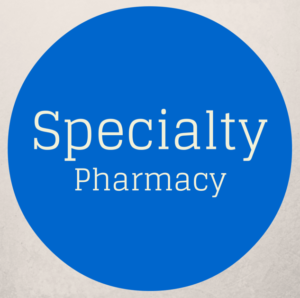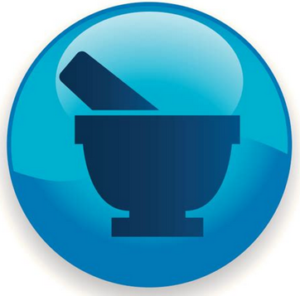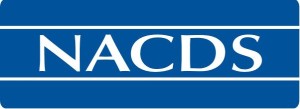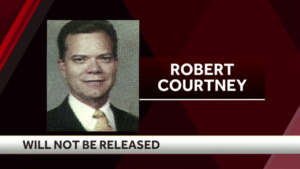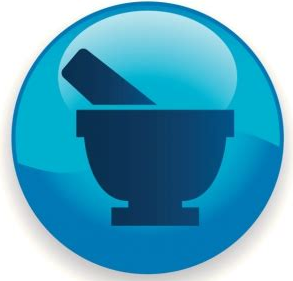- Hospitals Continue Their Startling Expansion into Specialty Pharmacy (drugchannels.net)
Hospitals and health systems are building a major presence in the specialty pharmacy industry...nine out of ten large hospitals now operate a specialty pharmacy. Hospitals and other healthcare providers account for one-third of all U.S. accredited specialty pharmacies...Clinical and general financial motivations are driving hospitals’ DIY specialty pharmacy growth. The enormous profit opportunities from the 340B Drug Pricing Program offer further encouragement for hospitals. In-house specialty pharmacies are also a valuable hedge against the potential loss of contract pharmacies...READ MORE
- Pharmacists Feel Overworked, Face More Discrimination (drugtopics.com)2019 National Pharmacist Workforce Study (aacp.org)
Pharmacists, pharmacy technicians, and other pharmacy staff felt overtaxed even before the coronavirus disease 2019 pandemic hit, according to findings from the 2019 National Pharmacist Workforce Study. The survey results showed that 69% of full-time pharmacists reported that their workload “increased” or “greatly increased” compared with the prior year...Although the profession is much more racially and gender diverse than in previous years, pharmacy staff reported age, race, and gender discrimination...Among full-time, actively practicing pharmacists, 71% rated their workload level at their primary place of employment as “high” or “excessively high” in 2019, compared with 66% and 68% of full-time pharmacists in 2014 and 2009, respectively...READ MORE
- Has Physician Specialty Dispensing Peaked—And Should They Blame PBMs? Everyone wants to be a specialty pharmacy—but it’s getting harder to compete. (drugchannels.net)
Consider the boom in pharmacies operated by physician practices. The growth in oral and patient self-injectable specialty drugs has encouraged physicians to dispense these products from their offices and clinics. For example, almost half of all oncology practices now dispense specialty drugs to their patients...the share of oncology practices dispensing prescriptions has declined for the first time in at least six years. I suspect that we are at a turning point in the growth of physician practice dispensing...this development reflects how PBMs and their plan sponsor clients are managing specialty channels...PBMs offer financial carrots that entice plan sponsor to shift prescriptions into PBM-owned specialty pharmacies. This dynamic creates novel competitive conflicts between historically separate drug channel participants. Meanwhile, physicians are learning the perils of competing with vertically-integrated channel organizations...READ MORE
- Opinion: Big Storm Brewing for American Specialty Pharmacies and Patients (drugtopics.com)
Specialty pharmacies dispense some of the most expensive, sensitive, and life-saving medications to patients, the kinds of medications that can cost more than $100,000 a year. Unfortunately, the way these prescriptions are being filled today is often chaotic and ripe for fraud, is different in each state, and potentially is about to get even worse for patients...When new prescriptions come in to these pharmacies, they go through what is often a very slow prescriber credential verification process that can involve manually calling or looking up licenses for the prescribing physicians on various board websites. When refills arrive, the pharmacies usually don’t verify prescriber licenses at all. The prescriber’s license could have expired, or the physician moved to a new state, had their license revoked, retired, or passed away...This means that patients are sometimes getting drugs from unlicensed prescribers or are being kept waiting for medications because of slow manual verification. It’s a process that lets through a lot of fraud and abuse...READ MORE
- How Hospitals and PBMs Profit—and Patients Lose—From 340B Contract Pharmacies (drugchannels.net)
The stunning growth of specialty pharmacies in the 340B Drug Pricing Program has accelerated a troubling trend: Patients covered by commercial insurance and Medicare Part D are footing the bill for 340B savings...That's the uncomfortable reality of the 340B program’s hidden prescription economics...Whenever a prescription is eligible for 340B pricing, an insured patient could pay thousands of dollars out of pocket—even as the 340B hospital and its contract pharmacy generate substantial profits. Meanwhile, private health plans and Medicare pay full price for drugs that are sold to 340B covered entities at deep discounts, further subsidizing hospitals and PBM-owned specialty pharmacies...340B Health, which lobbies for hospitals that participate in the 340B Drug Pricing Program, argues that the program “does not cost taxpayers any money.” Be wary of this misleading half-truth. The harsh reality is that patients and payers are funding the savings that flow back to 340B covered entities and their contract pharmacies...This fundamental unfairness is discussed rarely if ever. Rather than touting how hospitals spend their 340B savings, it’s time to start asking where those savings come from...READ MORE
- Pharmacy Groups Praise HHS Guidance Allowing Pharmacists to Provide COVID-19 Testing (drugtopics.com)
A coalition of national and local pharmacy organizations is praising the Department of Health and Human Services’ decision to allow licensed pharmacists to order and administer COVID-19 tests during the new coronavirus disease pandemic...“The accessibility and distribution of retail and independent community-based pharmacies make pharmacists the first point of contact with a healthcare professional for many Americans,” said HHS Assistant Secretary for Health Brett P. Giroir, MD...“This will further expand testing for Americans, particularly our healthcare workers and first responders who are working around the clock to provide care, compassion and safety to others.”...READ MORE
- Pharmacy “DIR fee” loophole must close, NACDS RxIMPACT urges (chaindrugreview.com)
The National Association of Chain Drug Stores RxIMPACT program has launched an Action Alert, urging Congress to provide “DIR fee” relief in time to save pharmacies and to reduce seniors’ out-of-pocket drug costs...pharmacy advocates are contacting U.S. Senators and members of the U.S. House of Representatives to build support for the Phair Pricing Act (H.R. 1034/S. 640). The bill would do what a recent Medicare rule left undone: providing relief from abusive pharmacy direct and indirect remuneration fees. The goal is to assure this is part of a drug-pricing bill that is enacted soon...“If our government is serious about stopping this unacceptable treatment of pharmacies, about reducing patients’ drug costs at the pharmacy counter, and about reducing overall healthcare costs, then they need to close this loophole and end the abuses of pharmacy DIR fees now,” said NACDS president and chief executive officer Steven Anderson...READ MORE
- Kansas City Ex-Pharmacist Robert Courtney Will Remain In Prison, Senator Hawley Says (kcur.org)
Robert Courtney, the former Kansas City pharmacist whose dilution of cancer medications led to the premature deaths of hundreds and possibly thousands of patients, will not be released from prison early...The decision to keep Courtney in prison would mark a reversal by the Bureau of Prisons to release him to a halfway house today and then to home confinement in Trimble, Missouri, because of the COVID-19 pandemic...Courtney was sentenced to 30 years in prison after he pleaded guilty in 2002 to various crimes associated with his drug dilution scheme...READ MORE
- Pharmacists Top Most Trusted Professions in Gallup Poll (drugtopics.com)Nurses Continue to Rate Highest in Honesty, Ethics (news.gallup.com)
Pharmacists remain at the top of the Gallup’s annual survey of professionals that rank the highest in “honesty and ethics”...For the 18th year in a row, nurses ranked as the most trusted professionals, as 85% of Americans say their honesty and ethical standards are "very high" or “high”. Engineers placed second at 66%, followed by medical doctors (65%), and pharmacists (64%)...“Medical professions in general rate highly in Americans' assessments of honesty and ethics, with at least 6 in 10 US adults saying medical doctors, pharmacists, and dentists have high levels of these virtues,”...READ MORE
- The State of Specialty Pharmacy 2019: Industry Trends and Photos from #Asembia19 (drugchannels.net)
FOUR TAKEAWAYS ON THE STATE OF SPECIALTY PHARMACY IN 2019
1) Specialty drugs continue to drive the pharmacy and PBM industries, though growth is slowing.
2) The larger independent specialty pharmacies are pulling ahead.
3) Many smaller independent pharmacies are struggling—and want to cash out.
4) Hospitals and health systems are battling—and partnering with—PBMs over specialty pharmacy
...READ MORE

